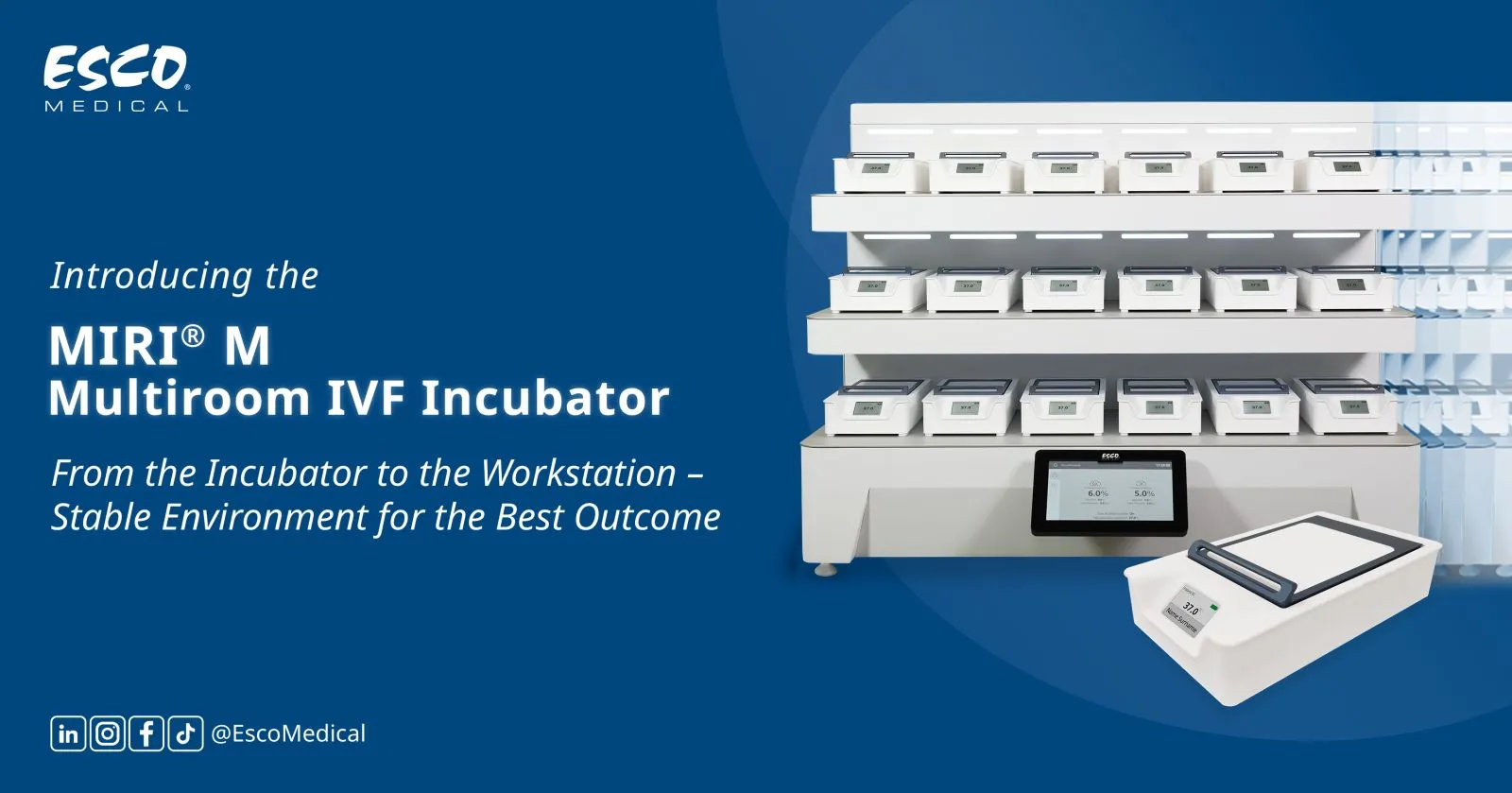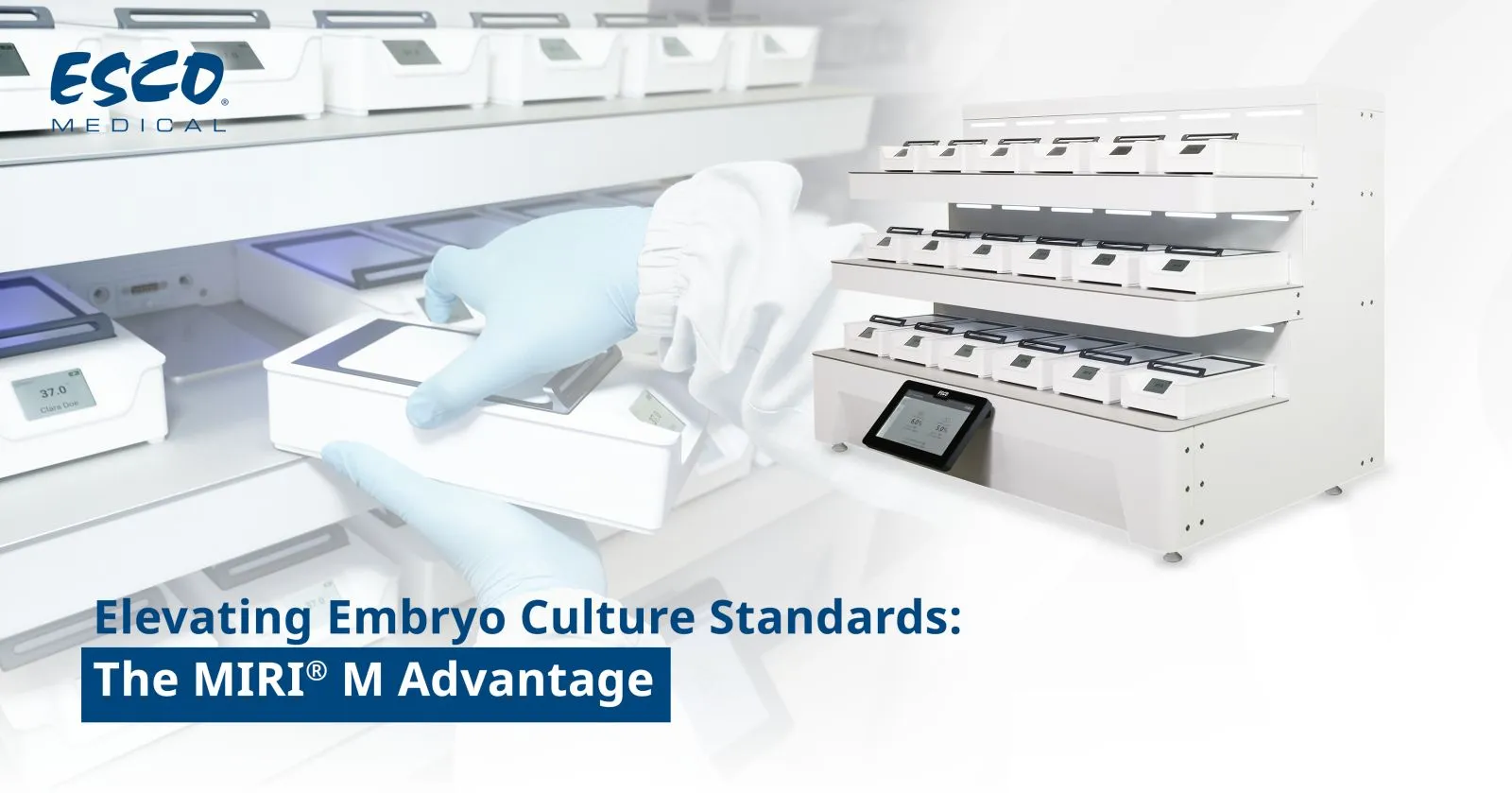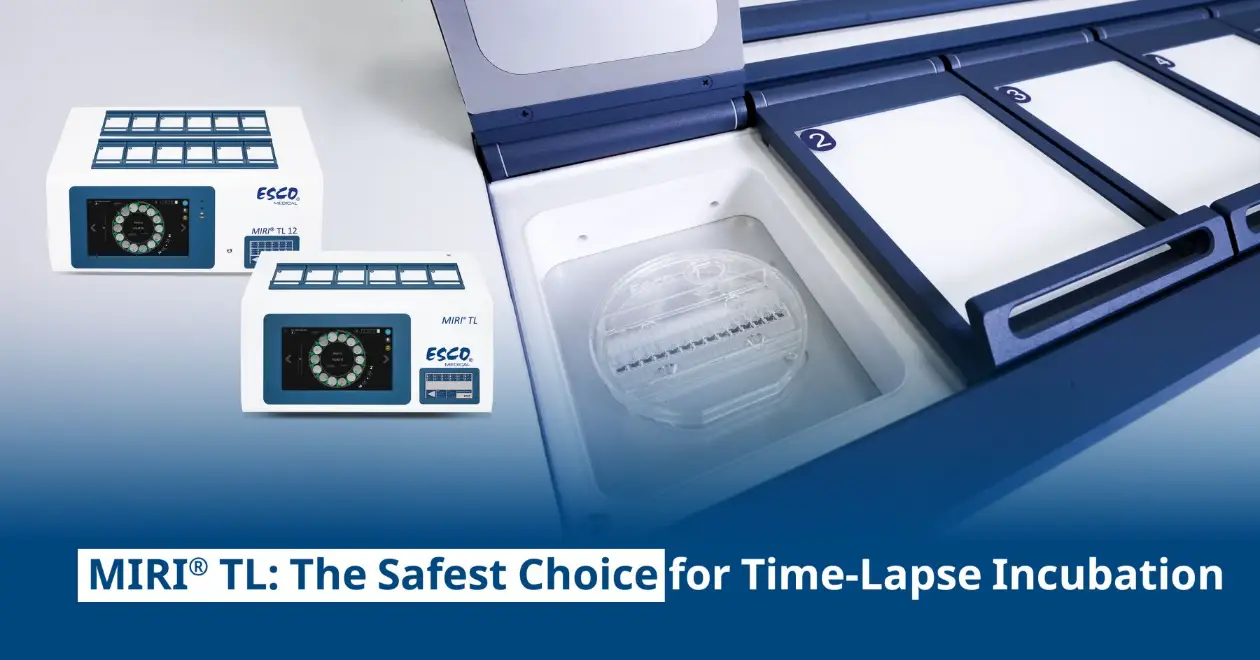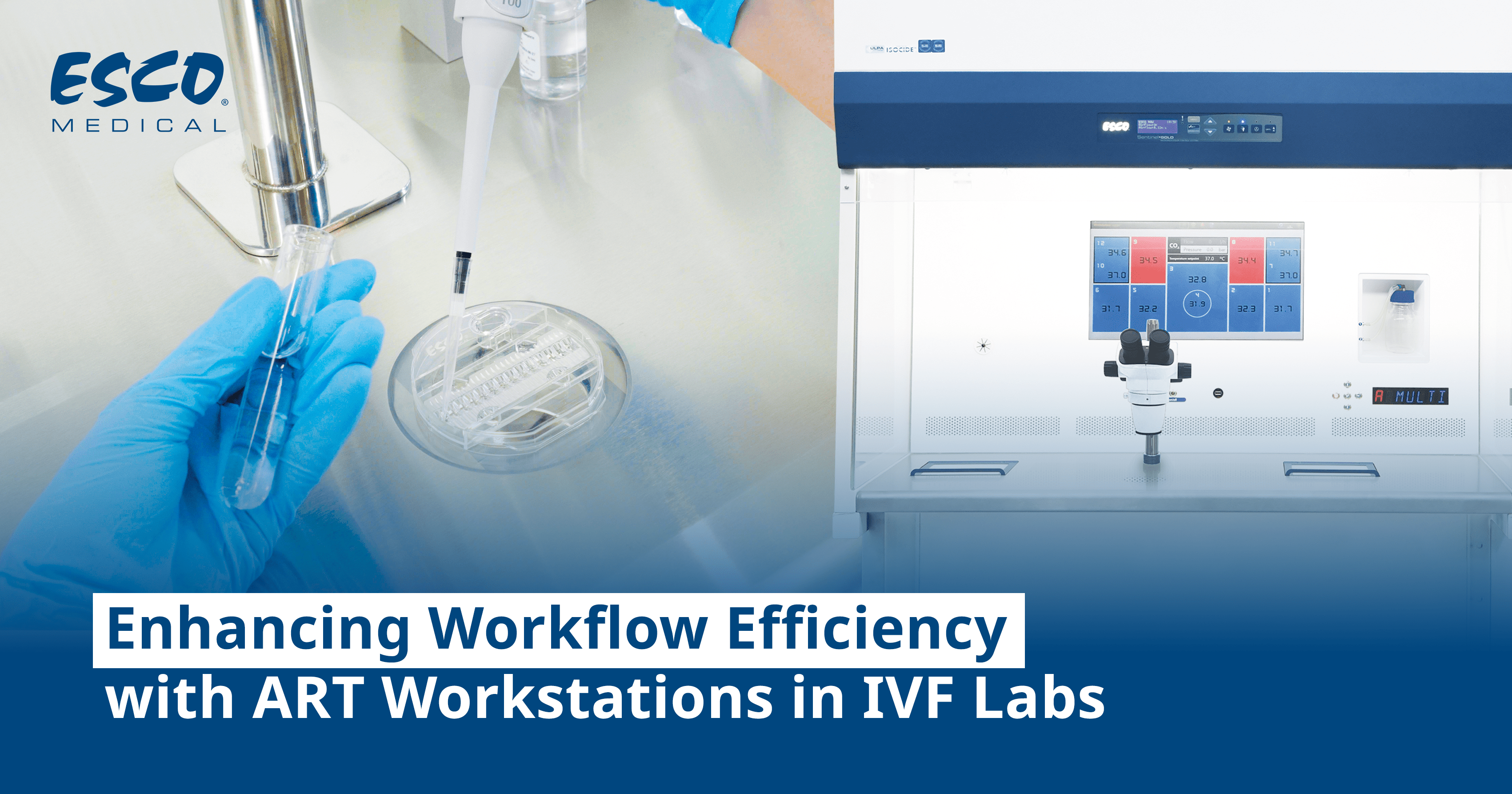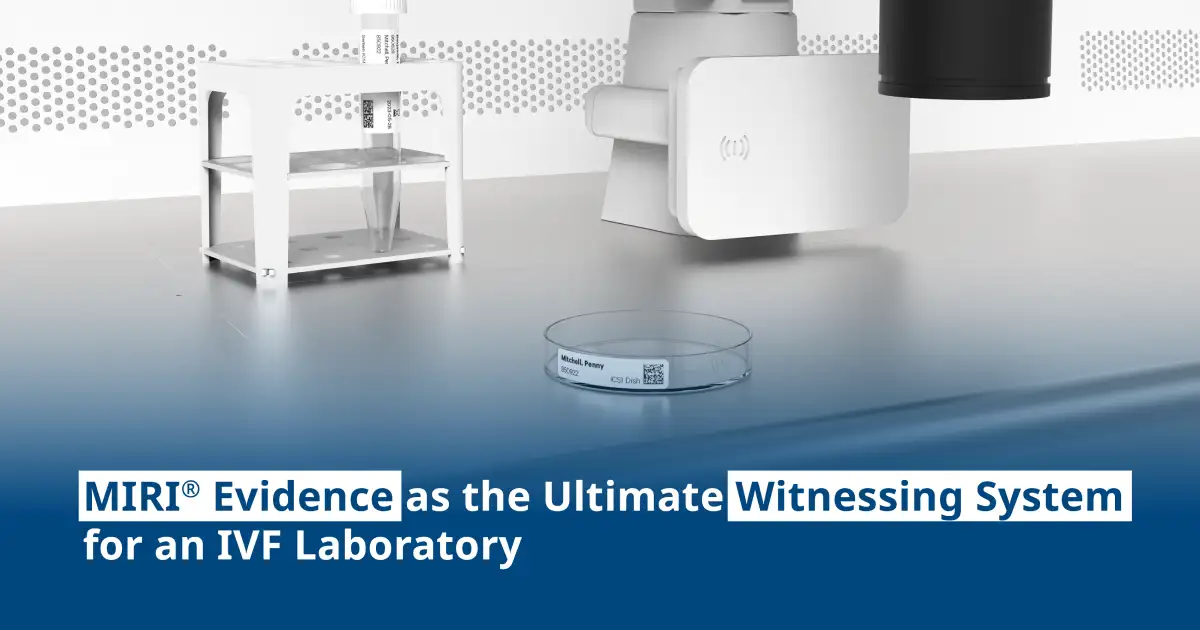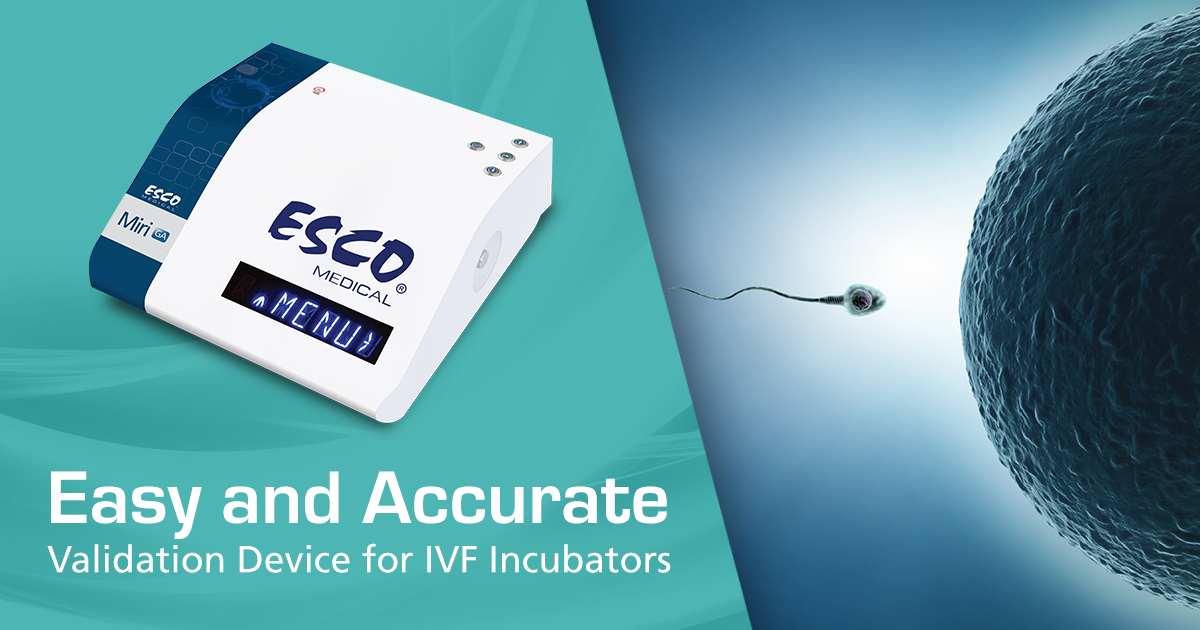
In vitro fertilization or IVF is a type of assisted reproductive technique used to help couples to achieve conception. Embryo culture using an incubator is one of the processes involved in an IVF procedure wherein a stable and ambient environment for the embryos is created and maintained. Typically, incubators are set at 37 degree Celsius which imitate the human body temperature. Likewise, gas concentration and other parameters such as pH, are being monitored and maintained accurately during the culture process to produce a better outcome. Generally, gas concentration used in an IVF laboratory is 5% carbon dioxide (CO2), 5% oxygen (O2), 90% nitrogen (N2). In addition to those parameters, pH must be kept within the optimal range between 7.2 to 7.4 to avoid the alteration in the embryo’s metabolism.
Gas concentration and temperature are two of the important parameters to be checked and monitored during the IVF procedure. Unstable gas concentration can greatly affect embryo development. Having higher or lower than the suggested amount of gas concentration not only affects the embryo itself but also affects the homeostasis inside the incubator by influencing the pH. Same with the fluctuating temperature range within the incubator; it causes harmful and bad side effects that can alter the growth and development of the cell being cultured.
Gas Concentration
Gas concentration is one of the critical parameters within the incubator that needs to be monitored and checked regularly.
High Oxygen (O2) Concentration
Having a high oxygen level is not always a good thing. Increased oxygen concentration inside the incubator could create unfavorable conditions for the embryos. Elevated oxygen levels would build up free oxygen radicals that could cause oxidative stress for the embryos leading to defective embryo development
High or Low in Carbon Dioxide (CO2) Concentration
According to the study, carbon dioxide is inversely proportional to the pH present in the culture medium. As the carbon dioxide level increases, the pH level decreases and vice versa. Creating the medium to be too acidic or too basic could affect the growth and development of the embryos being cultured.
Temperature
Changes in temperature inside the incubator are usually brought about by frequent closing and opening of the incubator lids.
Above or Below 37 degrees Celsius
Any drop or increase in temperature away from the optimal (37 degree Celsius) even a single degree, could greatly affect the embryo’s development. It could lead to adverse and irreversible damage to the cell. Moreover, prolonged exposure of embryos other than the optimal range reduces its fertilization rate, implantation potential, pregnancy success rate and affects the growth and development itself.
During embryo culture and in vitro fertilization (IVF) procedure, it is essential that the incubator runs at consistent and accurate levels of temperature, gas concentration, and pH. Any change to these parameters may cause a drastic effect on the development of the embryo, making incubators a crucial piece in any IVF laboratory. Sudden changes in the environmental conditions such as the temperature and gas concentration could literally damage and give harmful side effects to the cells being cultured. Hence, it is the utmost priority to stabilize and maintain the optimal set of range for the parameters during all the episodes taking place in the IVF procedure. Having constant calibration of the equipment is a must to ensure that the embryos will grow on the right and favorable condition.
MIRI® GA Gas and Temperature Validation Unit
As one of the leading manufacturers of IVF medical equipment, Esco Medical ensures that its incubators are also designed to perform external parameter validation easily and accurately with high-quality monitoring devices such as MIRI® GA. This device can be connected to any of Esco Medical IVF incubators like MIRI® Time-lapse Incubator, MIRI® Multiroom Incubator, and Mini MIRI® Incubators. By using this device, embryologists can now easily check the parameters inside the incubators.
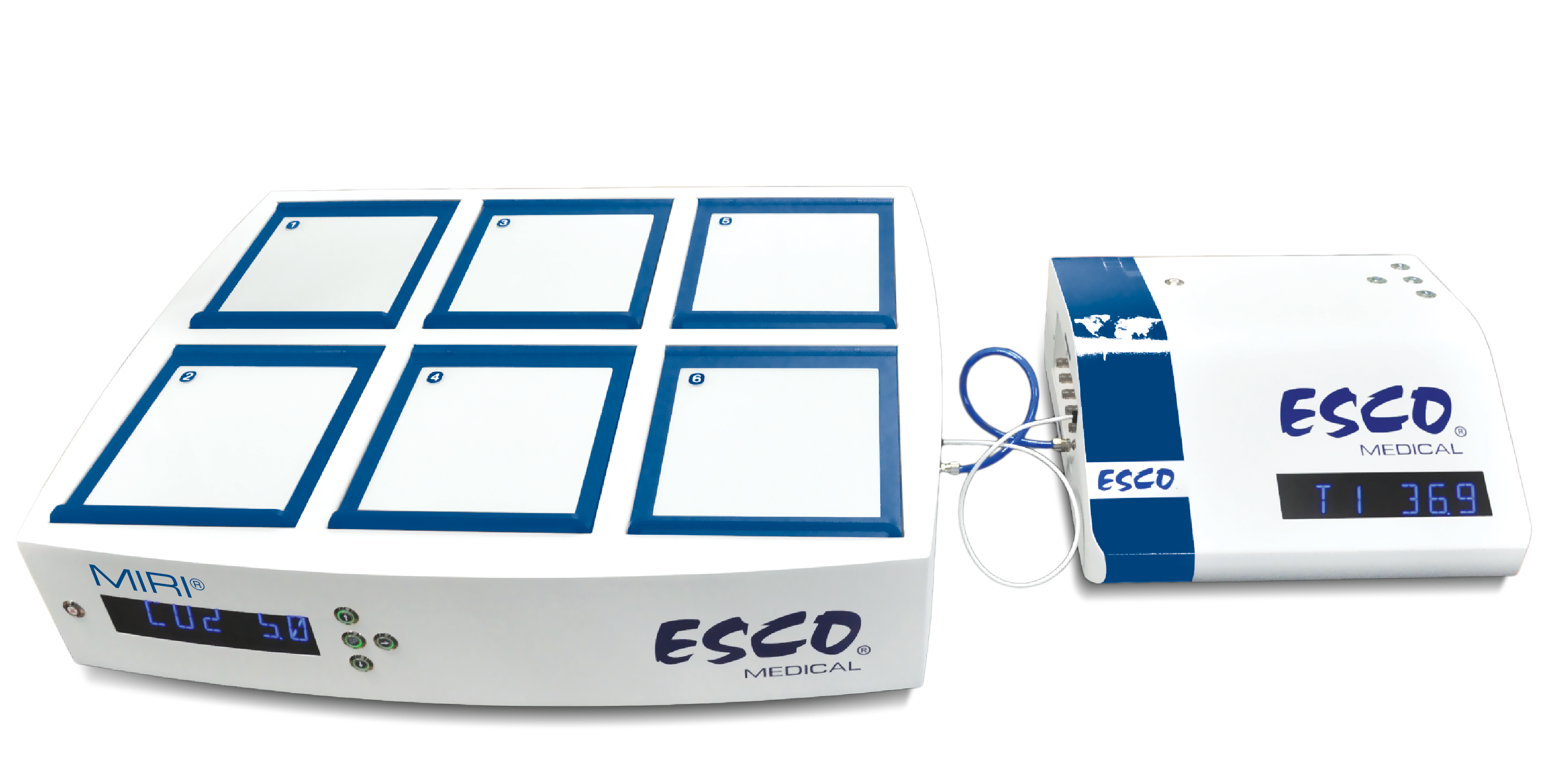
MIRI® GA is a tabletop device that is designed to execute an external incubator validation for easy and continuous measuring of gas and temperature. The MIRI® GA can efficiently monitor temperature (using the PT1000 connector) and gas concentration, flow and pressure. It is capable of validating up to 6 chambers concurrently 24 hours a day. Furthermore, it has an adjustable flow rate that allows it to properly sample small volume incubation chambers. Moreover, MIRI® GA comes with a data logging software that helps the embryologist to record and monitor each parameter and optionally send e-mail alarms. Another advantage of using MIRI® GA is that, it can be connected to any other brand of incubators available in the IVF laboratory
Other key features:
Constantly validate up to 6 x CO2 / O2 incubators
CO2/ O2 incubators Controllable flow rate
Gas feedback returns sampled gas to incubator or exhaust
Monitor up to 6 x PT1000 sensors
6 ports for sequential gas samples
By using this MIRI® GA, embryologists can now easily calibrate and validate the incubators in the IVF lab. With its features, accurate and regular monitoring of incubators with reliable validation devices will not compromise the growth of gametes/embryos. In fact, doing regular calibration and validation of incubators can contribute to the success rate of the IVF procedure. This will result in an increase in pregnancy success rate and boost the confidence and reputation of the fertility clinic.
